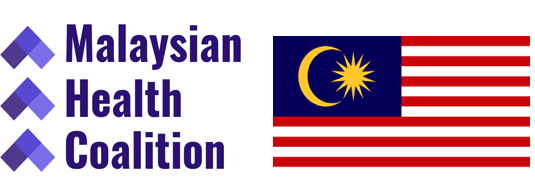
The Malaysian Health Coalition (MHC) welcomes the announcement of the National Recovery Plan and strongly supports the recommendations of the Malaysian Health and Sciences COVID-19 Advisory Group of Experts (Employ Precision Public Health for Safe Exit and Consequent Election Planning, dated 18 June 2021).
Detailed and nuanced goals and strategies are necessary to guide our National Recovery Plan.
Additionally, we urge the following:
1. Announce more detail and more KPIs for a complex pandemic
The three criteria of case numbers, ICU bed utilization and vaccination rates are not adequate to capture the complexity of the COVID-19 pandemic.
These criteria are "blunt instruments" that are highly-dependent on other variables, like testing numbers and vaccine supply.
A complex pandemic situation requires sufficient, balanced and nuanced KPIs to accurately measure our progress and performance.
These KPIs must be independent and scientific, and their methods should be constant and comparable across time.
Additional KPIs to guide the Recovery Plan could include dis-aggregated data by state/district for more targeted decisions; weightages for vulnerable populations; and diverse metrics to provide granularity for decision making.
Examples of diverse metrics include the moving weekly numbers of total active cases; percentage of positive tests over total tests performed (with the World Health Organization target being <5%), the case fatality rate; the number of health workers affected; and the percentage of successful contact tracing within 24 hours of a positive case.
2. Ensure truly data-driven decisions
Nationwide decisions should not be influenced by lobbying, double standards in enforcement or sudden policy U-turns.
Government decisions should be predictable to improve public and economic confidence. Therefore, decisions should be truly data-driven.
While we note that the government will move from one phase to another depending on the statistics, we believe that a scheduled decision-making timetable is helpful.
There should also be triggers to return to a higher level of restrictions if the situation worsens.
We strongly suggest changing the currently confusing xMCO (or PKPx) system to a clear-cut system that is more easily understood. Examples are the "traffic light systems" used in the European Union, Peru or Singapore.
3. Transparency and sharing of data
We urge the government to improve data sharing and transparency to enable effective management of the dynamic pandemic situation.
Sharing of data builds public trust, enables a robust external review by experts, and fosters public-private partnerships.
The large amount of data generated daily must be shared in an easy-to-view manner via a public dashboard online.
Adequate data-sharing across states and districts enable local authorities to tailor pandemic control strategies.
With states now allowed to procure vaccines, data-sharing and integration in the National Immunization Program can lead to stronger and fairer outcomes.
We look forward to exit the pandemic in a highly coordinated manner.
Therefore, setting the right KPIs, ensuring truly data-driven decisions, and sharing data are crucial for success.
ADVERTISEMENT
ADVERTISEMENT


































